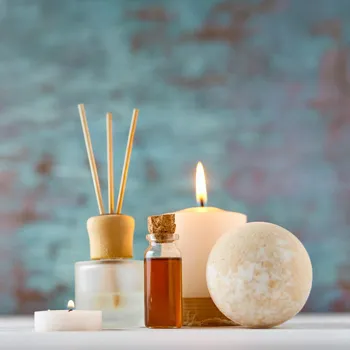Unlock the secrets your body is trying to tell you! Dive into the impact of stress on your health. Read more!
Namaste readers! Life in India, with its bustling cities, demanding jobs, and family responsibilities,
can sometimes feel like a pressure cooker. We all experience stress, but how much do we really know about what it does to our bodies? It's not just in your head, folks!

Stress has a real, tangible impact, and ignoring it can lead to serious health problems down the line. This article will highlight 9 important facts to understand how stress affects you and what you can do about it .
Think of it as your friendly neighbourhood guide to understanding your body's SOS signals!
Your Gut Feeling is More Than Just a Hunch:
Ever noticed how your stomach churns before a big presentation or during exam time? That's no coincidence! Stress hormones like cortisol directly affect your digestive system. It can slow down digestion, leading to bloating, constipation, or even diarrhoea.
On the other hand, it can speed things up too! For some, the urgency to visit the toilet increases manifold. Moreover, stress can disrupt the delicate balance of bacteria in your gut, which is crucial for overall health and immunity.
So, that "gut feeling" isn't just a metaphor; it's a real physical response to your emotional state. Keeping a check on the gut by managing stress is key! Paying attention to your diet and eating simple, easily digestible foods when stressed can help ease the discomfort.
Probiotics can be a good idea to balance gut bacteria, but do check with your doctor first. A cup of herbal tea can be soothing too.
Hello Breakouts, Goodbye Clear Skin!
Stress and pimples – a classic Indian drama! When you're stressed, your body produces more cortisol, and that can trigger increased oil production in your skin. This excess oil clogs pores, leading to acne breakouts.
Furthermore, stress can weaken your immune system, making your skin more vulnerable to bacteria and inflammation. So, while that big event you're stressing about might have triggered the breakout in the first place, stress is making it worse!
This is the high time you turn to a trusted dermatologist and never experiment with products. Remember those 'nani ke nuskhe' which worked like magic? Perhaps try applying a paste of sandalwood or neem on the outbreaks.
Muscles Tensing Up Like a Rubber Band:
Think about it: when you feel stressed, where do you hold the tension? For many, it's in the neck, shoulders, and back. Stress causes your muscles to tense up as a protective mechanism. If the stress is chronic, this tension can become chronic too, leading to headaches, muscle aches, and stiffness.
It's like your body is constantly bracing for impact! If you have a desk job, take frequent breaks to stretch and move around. Simple exercises like shoulder rolls and neck stretches can do wonders. A warm bath with Epsom salts can also help relax those tense muscles.
Bye-Bye Sleep, Hello Insomnia:
Tossing and turning all night, thoughts racing like a Formula One car? That's stress messing with your sleep cycle. Stress hormones interfere with your body's natural sleep-wake rhythm, making it difficult to fall asleep and stay asleep. Lack of sleep, in turn, makes you even more stressed!

It's a vicious cycle. Creating a relaxing bedtime routine is super important. Avoid screen time an hour, set the mood by dimming the lights and playing soothing music. You can also read a book. If you start with this sleep routine and are consistent, it will improve the cycle.
No caffeine after evening hours will also help.
Your Heart is Beating Like a Drum Solo:
Stress hormones like adrenaline increase your heart rate and blood pressure. While this is a normal response to acute stress, chronic stress can put a strain on your cardiovascular system. Over time, it can increase your risk of heart disease, stroke, and other heart problems.
Deep breathing exercises can help to calm your nervous system and lower your heart rate. Regular physical activity is also very helpful in managing stress and promoting heart health. Talk to your doctor about ways to manage your blood pressure if it's consistently high.
Immunity Going to Goa on a Vacation?:
Stress weakens your immune system, making you more susceptible to infections and illnesses. When you're stressed, your body produces less white blood cells, which are crucial for fighting off germs. That's why you might find yourself catching colds and flu more often when you're under pressure.
Ensure you are having a well-balanced diet. Vitamin C and other antioxidants can boost your immunity. Prioritize getting enough sleep, as lack of sleep further weakens your immune system. When stressed, laugh like nobody is watching and be physically active.
The Brain Fog is Real:
Can't concentrate? Feeling forgetful? Stress can affect your cognitive function, making it difficult to focus, remember things, and make decisions. Chronic stress can even shrink the hippocampus, the part of the brain responsible for memory and learning.

Take regular breaks throughout the day to rest your mind. Practice mindfulness and meditation to improve your focus and concentration. Learn a new language, play an instrument, or engage in other activities that challenge your brain.
Low Energy is a Red Flag:
Feeling constantly tired, even after a full night's sleep? Stress can drain your energy levels, leading to fatigue and exhaustion. Stress hormones disrupt your metabolism and interfere with your body's ability to produce energy.

Managing stress levels with relaxation techniques or hobbies will help you. Getting enough sleep, eating regular meals, and staying hydrated are also essential for maintaining energy levels.
Your Mood is a Rollercoaster Ride:
Stress can significantly impact your mood, leading to irritability, anxiety, and even depression. Stress hormones affect the levels of neurotransmitters in your brain, which regulate mood and emotions. Connecting with friends and family will help when stressed.

Pursuing hobbies and engaging in activities you enjoy can also boost your mood. If you're feeling overwhelmed, talk to a therapist or counsellor.
The Takeaway: Listen to Your Body and Take Action!
Stress is a part of life, but how you manage it makes all the difference.
Paying attention to these nine facts and taking steps to reduce stress in your life can significantly improve your health and well-being. Remember, small changes can make a big difference! Incorporate relaxation techniques like yoga and meditation into your daily routine.
Maintain a healthy lifestyle with regular exercise and a balanced diet. And most importantly, don't be afraid to seek help from a mental health professional if you're struggling to cope. Your health is your wealth, so invest in it wisely!
AI Generated Content. Glance/InMobi shall have no liability for the content












